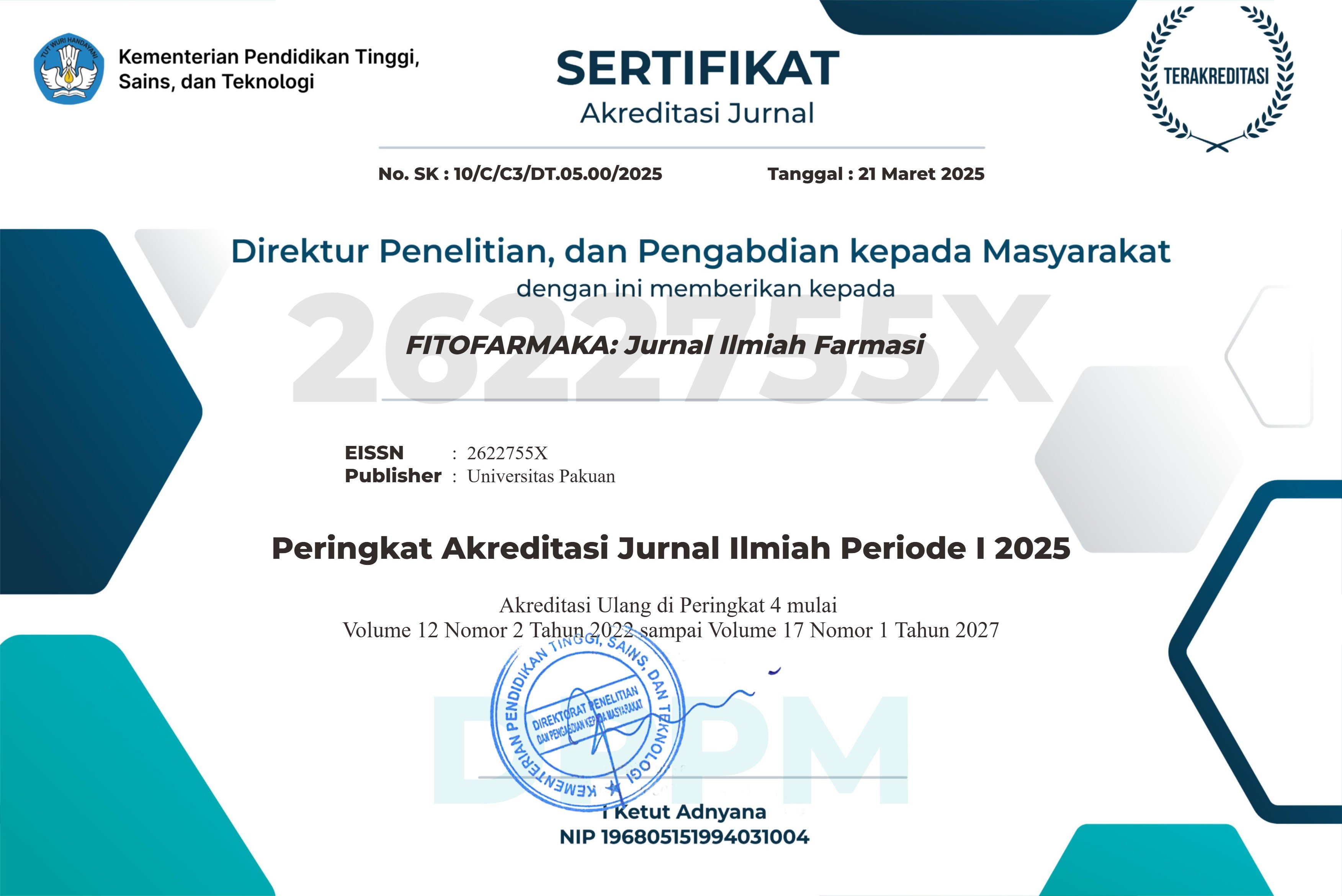Aphrodisiac Activity of The n-Hexane Fraction of Clove Leaves (Syzygium aromaticum L.) on The Fertility of Male White Rats (Rattus norvegicus)
DOI:
https://doi.org/10.33751/jf.v14i2.14Abstract
Aphrodisiacs are stimulant that modulate the neuroendocrine system to enhance libido or sexual desire and affect reproductive activity. Hormonal or neurological imbalances, as well as disruptions in reproductive tissue, can affect male fertility. One plant known to stimulate sexual arousal is the clove (Syzygium aromaticum L.), with its active compound, primarily eugenol, presumed to enhance testicular function and thereby potentially address male sexual dysfunction. This study aims to examine the aphrodisiac activity of the n-hexane fraction of clove leaves (Syzygium aromaticum L.) on the fertility of male white rats by assessing parameters such as the mating index, fertility index, libido index, pregnancy index, and live fetus index. This research used an experimental method with a post-test modified randomized control group design, involving 20 male and 40 female white rats divided into four treatment groups in a 1:2 ratio. Each group comprised 5 male and 10 female rats. The groups included a normal control (Na-CMC), a positive control (X-Gra 51.37 mg/kg BW), a clove leaf extract group (250 mg/kg BW), and an n-hexane fraction of clove leaves group (250 mg/kg BW). The findings indicate that the n-hexane fraction of clove leaves (Syzygium aromaticum L.) at a dose of 250 mg/kg BW contains secondary metabolite steroids and exhibits significant aphrodisiac activity that affect fertility which is characterized by a significant differences in the percentages of pregnancy and fertility indices.
Downloads
Published
How to Cite
Issue
Section
License
Copyright (c) 2024 FITOFARMAKA: JURNAL ILMIAH FARMASI

This work is licensed under a Creative Commons Attribution-ShareAlike 4.0 International License.








